Solar Installers Mukwonago
Find the best Solar Panel Installers in Mukwonago
Receive 3 FREE Local Solar Installers quotes for your project today! Compare profiles, reviews, accreditations, portfolio, etc... and choose the best deal.
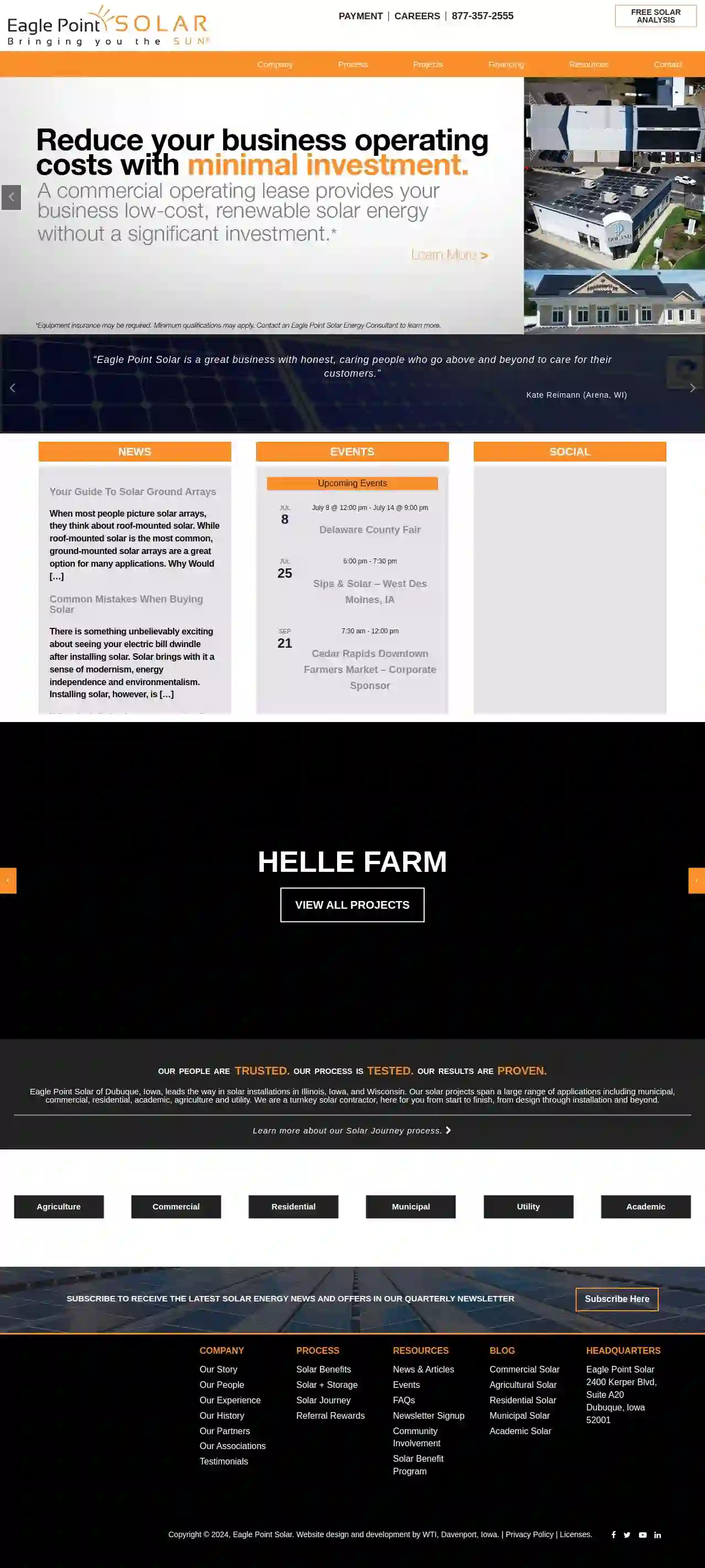
Eagle Point Solar
4.5158 reviews2400 Kerper Blvd, Suite A20, Dubuque, 52001, USEagle Point Solar is a leading provider of solar energy solutions, dedicated to helping individuals and businesses harness the power of the sun. With a strong commitment to sustainability and customer satisfaction, Eagle Point Solar offers a range of services including solar panel installation, solar storage solutions, and solar maintenance. Their team of experienced professionals ensures that every project meets the highest standards of quality and efficiency.
- Services
- Why Us?
- Accreditations
- Our Team
- Testimonials
- Gallery
Get Quote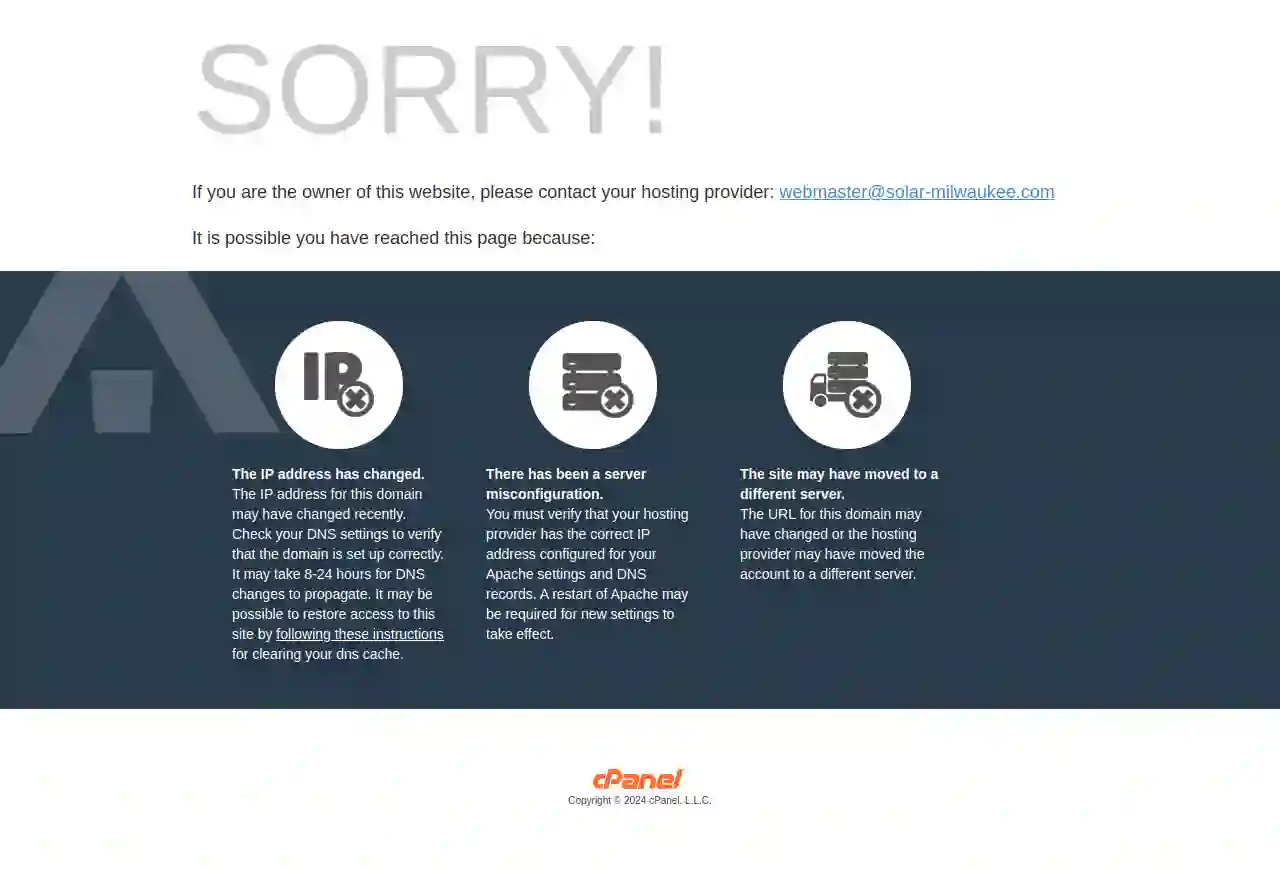
Solar Co of Milwaukee
51 reviewsMilwaukee, Wisconsin, USA, 123 Solar Way, 53202, USSolar Co of Milwaukee is a trusted partner for solar panel installation in the Milwaukee, Wisconsin area. Our network of industry experts specializes in residential and commercial installations, off-grid systems, and energy storage solutions. We are passionate about renewable energy and sustainable practices, providing top-notch service and support from start to finish. Our goal is to help you reduce your carbon footprint and save on your energy bills.
- Services
- Why Us?
- Accreditations
- Our Team
- Testimonials
- Gallery
Get Quote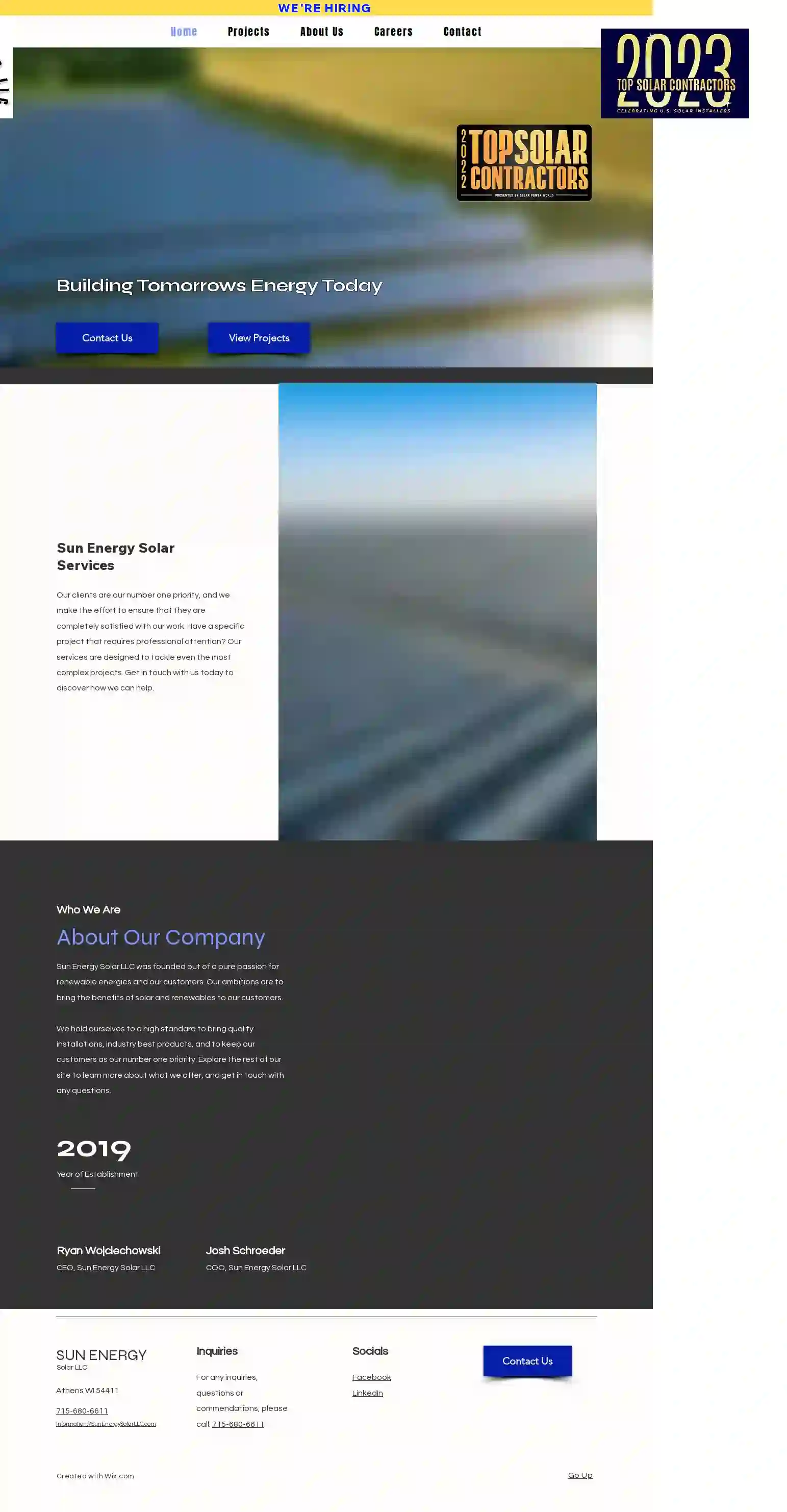
Sun Energy Solar llc
Athens, WI, Athens WI, 54411, USSun Energy Solar LLC was founded out of a pure passion for renewable energies and our customers. Our ambitions are to bring the benefits of solar and renewables to our customers. We hold ourselves to a high standard to bring quality installations, industry best products, and to keep our customers as our number one priority.
- Services
- Why Us?
- Our Team
- Gallery
Get Quote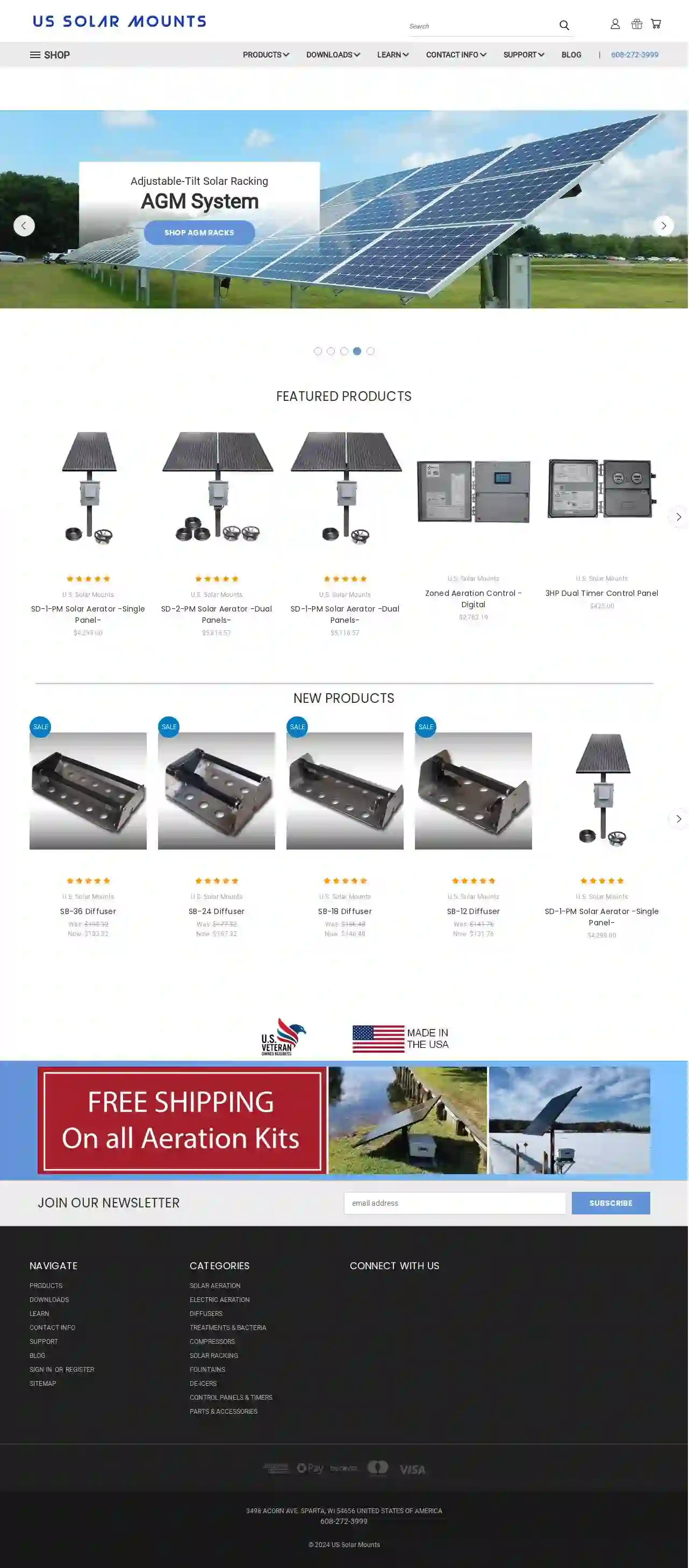
U.S. Solar Mounts Corp
3.73 reviews3498 Acorn Ave., Sparta, WI, 54656, USU.S. Solar Mounts is a leading provider of solar aeration systems, electric aeration, diffusers, treatments, compressors, solar racking, fountains, de-icers, control panels, and timers. They offer a wide range of products designed for various applications, including pond aeration, water treatment, and solar power solutions. Their products are designed to be reliable, efficient, and easy to install, making them suitable for both residential and commercial use. The company also provides resources such as manuals, spec sheets, and FAQs to help customers understand and maintain their products.
- Services
- Why Us?
- Accreditations
- Our Team
- Testimonials
- Gallery
Get Quote
Midwest Solar Power
4.971 reviewsMadison, WI, USA, 816 Walsh Rd, 53714, USMidwest Solar Power LLC was founded in 2009, bringing together backgrounds in construction, project management, and customer service to modernize the solar installation business. The company strives to be the premier local solar installer in Dane County by doing honest, high-quality work at a fair price. Each installation is unique, and Midwest Solar Power can design the right system to meet your energy needs.
- Services
- Why Us?
- Accreditations
- Our Team
- Testimonials
- Gallery
Get Quote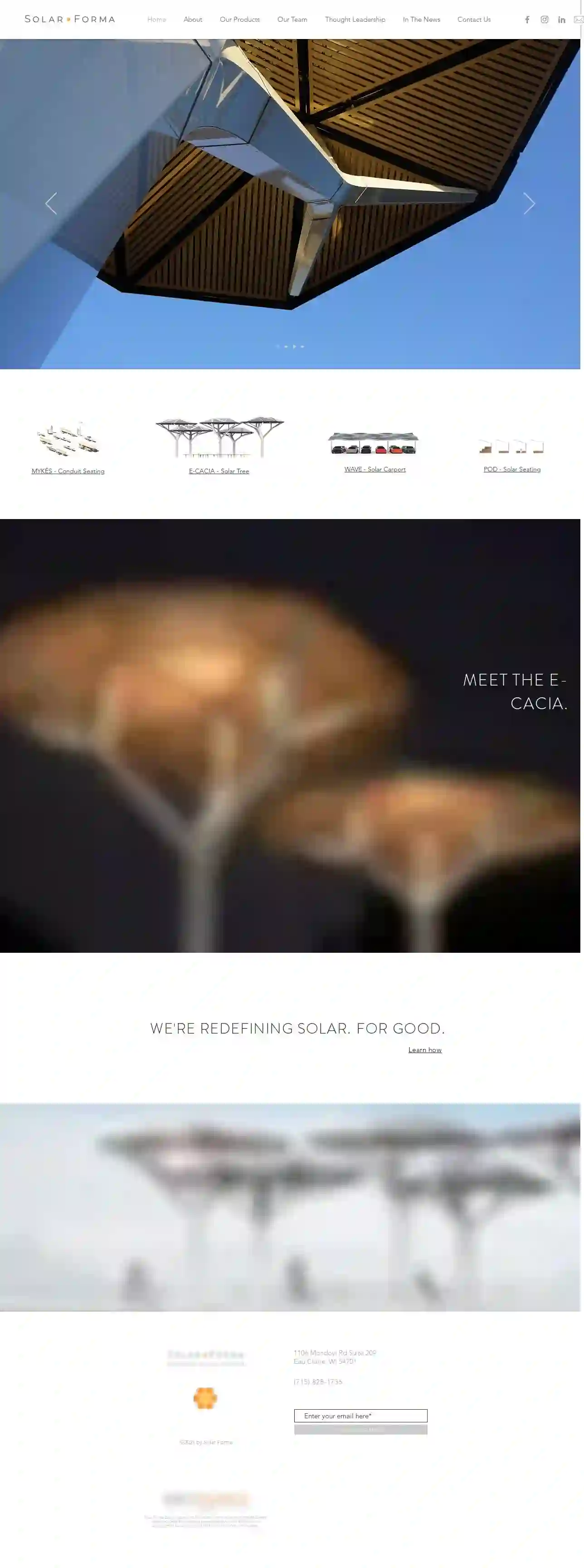
Solar Forma Design
1106 Mondovi Rd Suite 209, Eau Claire, 54701, USSolar Forma Design is a company that specializes in solar-powered products, including the E-CACIA Solar Tree, WAVE Solar Carport, POD Solar Seating, and MYKĒS Conduit Seating. They aim to redefine solar energy for good and have been a grant recipient of the UW System Ideadvance Seed Fund.
- Services
- Why Us?
- Accreditations
- Gallery
Get Quote
Solarus
3.6132 reviews440 East Grand Avenue, Wisconsin Rapids, WI 54494, 54494, USSolarus is a locally owned and invested company that provides fast, reliable, and affordable fiber internet services. They offer various speed options including Economy, Family, Deluxe, Premium, and Ultra, catering to different needs and budgets. The company is committed to the success of the communities they serve and has a strong presence in Wisconsin Rapids and Manawa. They provide 24/7 local tech support and have a team of knowledgeable and professional staff. Solarus also supports local initiatives and community events, demonstrating their commitment to giving back.
- Services
- Why Us?
- Accreditations
- Our Team
- Testimonials
- Gallery
Get Quote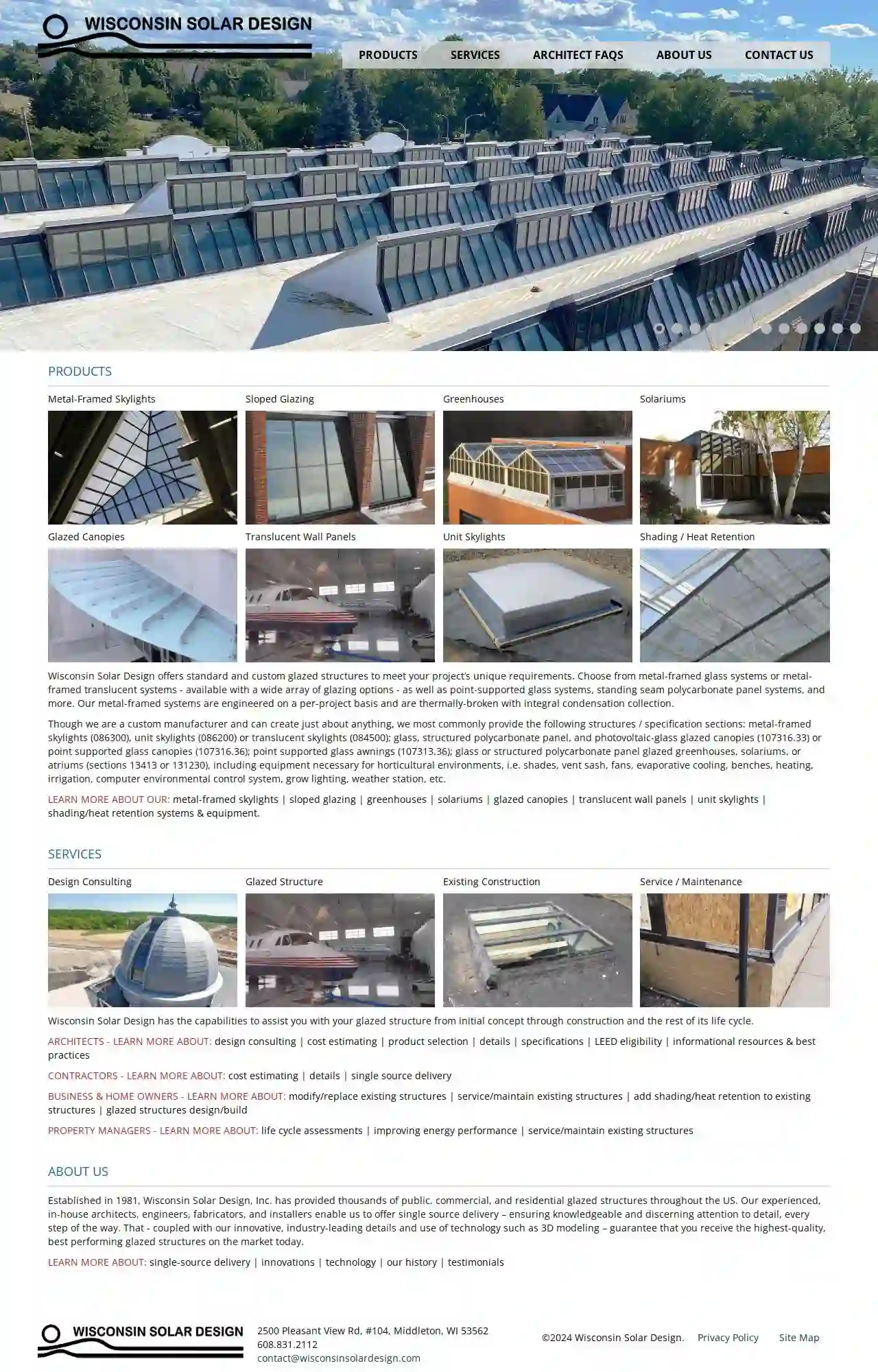
Wisconsin Solar Design Inc.
2500 Pleasant View Road, Middleton, WI 53562, Madison, 53562, USEstablished in 1981, Wisconsin Solar Design, Inc. has provided thousands of public, commercial, and residential clients with custom glazed structures. Their team of architects and engineers utilize the latest in CAD and 3D modeling to prepare drawings and virtually mock-up details. This enables them to quickly and precisely fabricate projects in their modern shop facility. Wisconsin Solar Design offers standard and custom glazed structures to meet unique project requirements, including metal-framed glass systems, metal-framed translucent systems, point-supported glass systems, standing seam polycarbonate panel systems, and more.
- Services
- Why Us?
- Accreditations
- Our Team
- Testimonials
- Gallery
Get Quote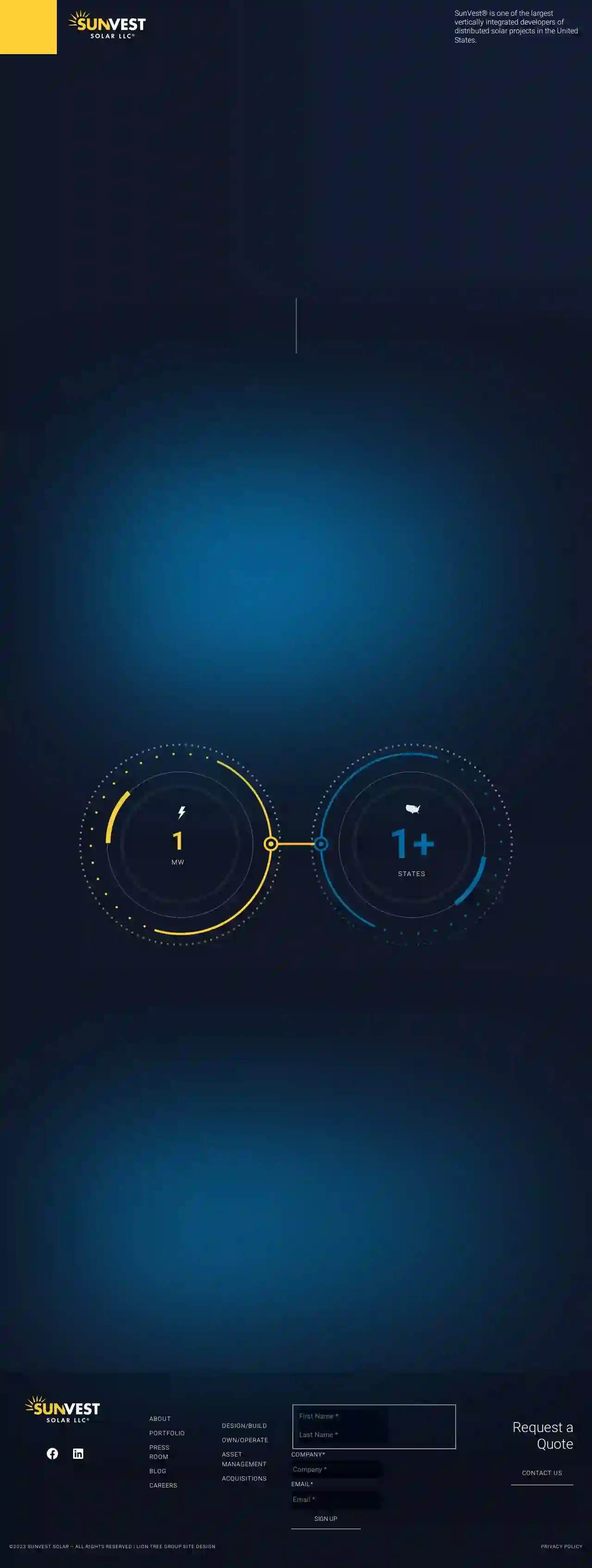
SunVest Solar LLC
4.18 reviewsN27 W24025 Paul Ct, Suite 100, Pewaukee, 53072, USSunVest Solar, LLC is one of the largest vertically integrated developers of distributed solar projects in the United States. Our mission is to advance clean energy nationwide with turnkey, cost-effective solar solutions. We offer business, nonprofit, and utility partners expertise across the value chain, including development, construction, financing, and operations. We develop community solar projects in key markets nationwide, distributed solar for commercial/industrial customers, and solar assets for utilities, co-ops, and municipalities.
- Services
- Why Us?
- Accreditations
- Our Team
- Testimonials
- Gallery
Get Quote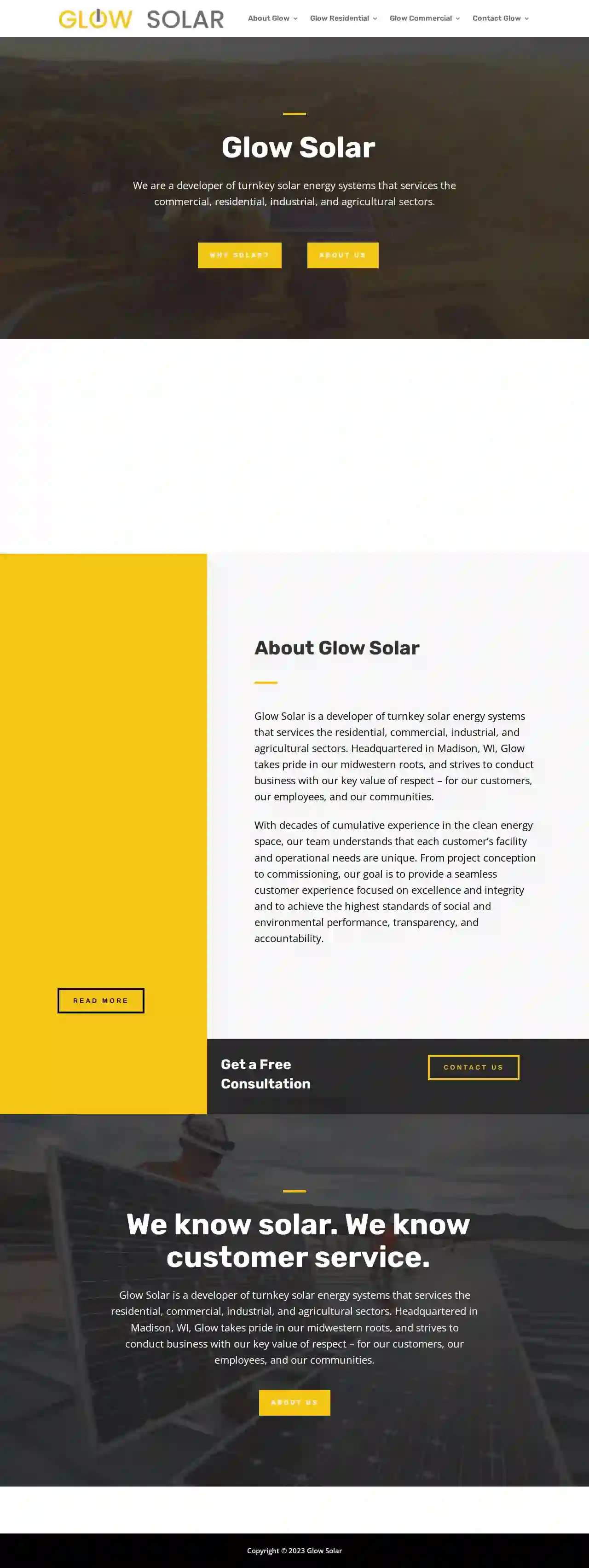
Glow Solar
4.47 reviews123 Solar Way, Suite 100, Madison, 53703, USGlow Solar is a developer of turnkey solar energy systems that services the residential, commercial, industrial, and agricultural sectors. Headquartered in Madison, WI, Glow takes pride in our midwestern roots, and strives to conduct business with our key value of respect – for our customers, our employees, and our communities. With decades of cumulative experience in the clean energy space, our team understands that each customer’s facility and operational needs are unique. From project conception to commissioning, our goal is to provide a seamless customer experience focused on excellence and integrity and to achieve the highest standards of social and environmental performance, transparency, and accountability.
- Services
- Why Us?
- Accreditations
- Our Team
- Testimonials
- Gallery
Get Quote
Over 4,210+ Solar Installers on our directory
Our solar contractors operate in Mukwonago & beyond!
SolarCompaniesHub has curated and vetted Top Solar Installers arround Mukwonago. Find a top & trustworthy pro today.
Frequently Asked Questions About Solar Installers
- System size
- Roof complexity
- Weather conditions
- Permitting and inspections
- Installer's schedule
- System size (measured in kilowatts, or kW)
- Type of solar panels (monocrystalline, polycrystalline, thin-film)
- Roof complexity (pitch, size, obstructions)
- Labor costs in your area
- Available incentives and rebates
How long does it take to install solar panels?
What is net metering, and how does it work?
Can I go completely off-grid with solar panels?
What is the average cost of solar panel installation in USA?
How long does it take to install solar panels?
- System size
- Roof complexity
- Weather conditions
- Permitting and inspections
- Installer's schedule
What is net metering, and how does it work?
Can I go completely off-grid with solar panels?
What is the average cost of solar panel installation in USA?
- System size (measured in kilowatts, or kW)
- Type of solar panels (monocrystalline, polycrystalline, thin-film)
- Roof complexity (pitch, size, obstructions)
- Labor costs in your area
- Available incentives and rebates